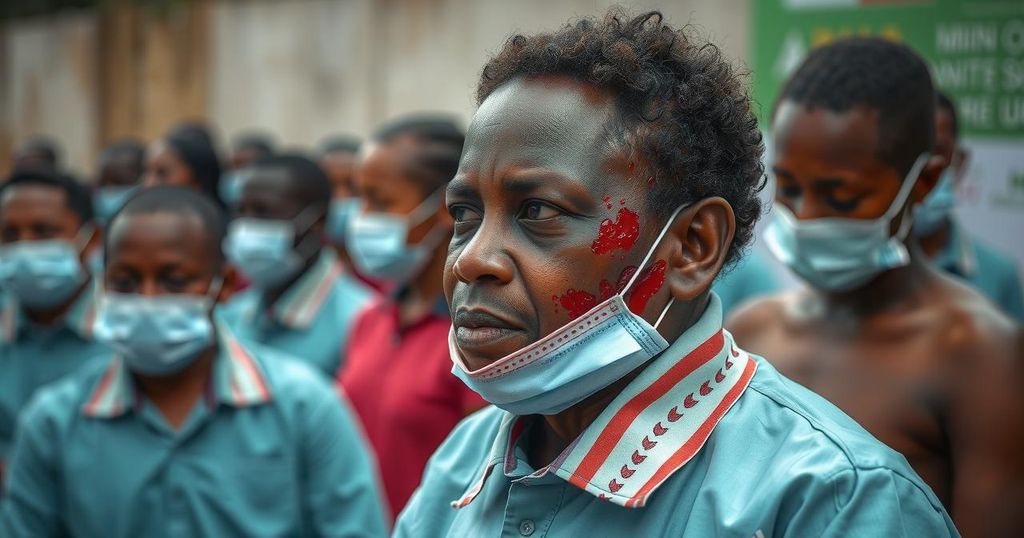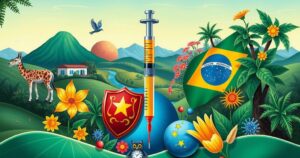Investigation Underway for Deadly Mysterious Illness in Congo

A mysterious illness in the DRC has resulted in 79 deaths and 376 cases since October. Symptoms include flu-like reactions and anemia, primarily affecting children under five. The WHO and Africa CDC are investigating the outbreak, highlighting the importance of improved disease detection systems amid challenges posed by geographical remoteness.
Health authorities are actively investigating a deadly and undiagnosed disease that has emerged in the Democratic Republic of Congo (DRC), resulting in 79 fatalities and 376 reported cases since late October. The Africa Centres for Disease Control and Prevention (Africa CDC) indicated that the outbreak originated in a remote area of the Kwango province, situated along the Angola border. Symptoms reported include fever, headache, cough, difficulty breathing, and anemia. The World Health Organization (WHO) is collaborating with national officials to identify the source of the illness and is collecting samples for further analysis.
The outbreak primarily impacts children under five years old, who represent a significant number of infected individuals and related deaths. Experts express concern over the high mortality rate, with nearly 21% of reported cases resulting in death. There is ongoing examination of the situation to gather reliable data and ascertain the nature of the illness, revealing potential challenges in early detection and reporting due to geographical remoteness.
Dr. Peter Chin-Hong from the University of California, San Francisco, reflects on the unusual aspect of anemia being a reported symptom, noting the need for clarification on whether it is a pre-existing condition among patients. Additionally, there remains uncertainty regarding the occurrence of asymptomatic cases and the progression of the disease. Investigators have dispatched teams to gain insights into the outbreak and analyze the laboratory test results expected soon.
Challenges in health infrastructure and delayed reporting highlight systemic issues in disease detection within Africa. The analysis of current data suggests a need for improved surveillance systems to ensure rapid responses to emerging health threats. Experts emphasize the importance of global cooperation in disease investigation and the imperative for vigilance, as the global nature of illness transmission demands thorough monitoring.
The Democratic Republic of Congo (DRC) is currently experiencing a serious health crisis due to a mysterious infectious disease that has resulted in significant morbidity and mortality. The situation has gained attention from both national and international health organizations, including the Africa CDC and the World Health Organization (WHO). Understanding the dynamics of this outbreak is critical, especially as it predominantly affects young children and raises concerns about public health infrastructure and disease surveillance in remote areas.
The outbreak of the unidentified disease in the DRC underscores the necessity for enhanced disease surveillance and rapid response mechanisms. The high mortality rate and the vulnerability of young children emphasize the urgent need for effective public health interventions and timely reporting systems. Global collaboration is essential to address emerging health threats and ensure preparedness against potential disease spread beyond the affected region.
Original Source: www.goodmorningamerica.com








